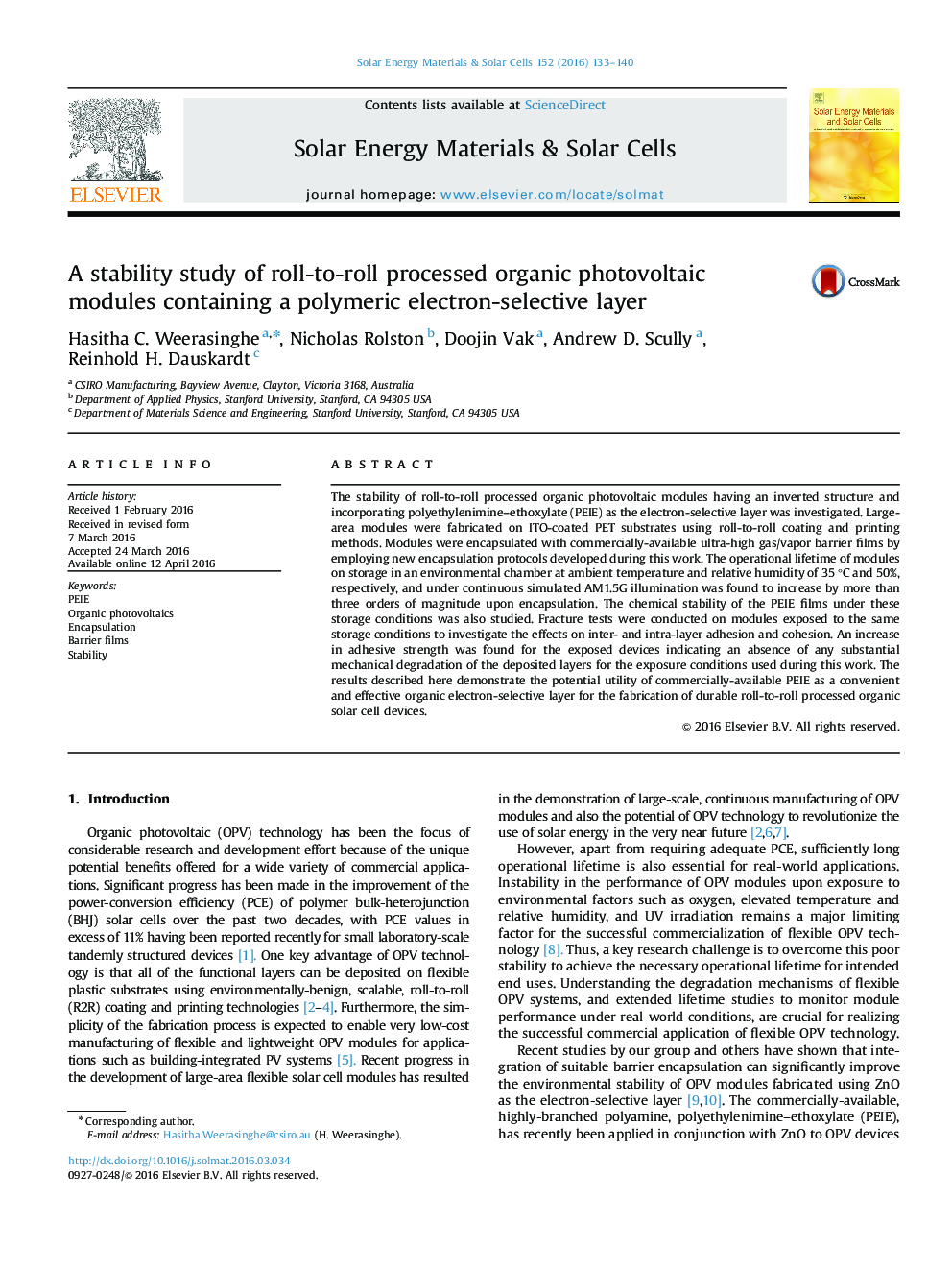| Article ID | Journal | Published Year | Pages | File Type |
|---|---|---|---|---|
| 77587 | Solar Energy Materials and Solar Cells | 2016 | 8 Pages |
•Efficient organic photovoltaic modules were prepared on polymer substrates.•The effect of advanced encapsulation on the device lifetime was evaluated.•Fracture tests were conducted on printed modules.•Significant enhancement of device lifetime was observed due to the encapsulation.
The stability of roll-to-roll processed organic photovoltaic modules having an inverted structure and incorporating polyethylenimine–ethoxylate (PEIE) as the electron-selective layer was investigated. Large-area modules were fabricated on ITO-coated PET substrates using roll-to-roll coating and printing methods. Modules were encapsulated with commercially-available ultra-high gas/vapor barrier films by employing new encapsulation protocols developed during this work. The operational lifetime of modules on storage in an environmental chamber at ambient temperature and relative humidity of 35 °C and 50%, respectively, and under continuous simulated AM1.5G illumination was found to increase by more than three orders of magnitude upon encapsulation. The chemical stability of the PEIE films under these storage conditions was also studied. Fracture tests were conducted on modules exposed to the same storage conditions to investigate the effects on inter- and intra-layer adhesion and cohesion. An increase in adhesive strength was found for the exposed devices indicating an absence of any substantial mechanical degradation of the deposited layers for the exposure conditions used during this work. The results described here demonstrate the potential utility of commercially-available PEIE as a convenient and effective organic electron-selective layer for the fabrication of durable roll-to-roll processed organic solar cell devices.
Graphical abstractFigure optionsDownload full-size imageDownload as PowerPoint slide
